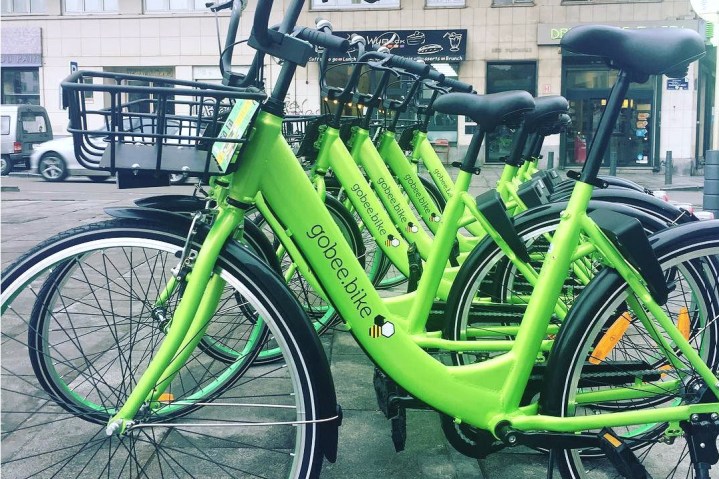Bike-sharing schemes are everywhere these days, though some are evidently more welcome than others.
Take Gobee. The Hong Kong-based outfit has just quit an entire country — France — because of ne’er-do-wells regularly wrecking its fleet of bicycles.
“Over the months of December and January, the mass destruction of our fleet has become the new entertainment of underaged individuals,” Gobee said in a statement seen by the Guardian.
The dockless service had 2,000 bikes in Paris and operated until recently in two other French cities. Riders used the Gobee app to find an available bike nearby, and scanned a QR code to unlock it. But in the four months since its launch, the company said 60 percent of its bikes had been destroyed, stolen, or modified for private use.
Its decision to exit Paris comes just over a month after it ended operations in the French cities of Lille and Reims, and also the Belgian capital, Brussels, where Gobee said up to 90 percent of its bikes had been stolen or damaged. The company no longer has any schemes operating in Europe.
In a blog post (translated), Gobee said that destroying the bikes had apparently become “the new hobby of individuals, mostly minors, encouraged by content widely distributed and shared on social networks.”
The company said it was “difficult to admit that a generation of individuals could undermine this promising project. Today, this critical situation does not allow us to continue our activity, and we are therefore forced to end our service at the national level.”
Gobee promised to refund to its users all deposits and unused credit within the next 10 days. Despite the setback, it said it wanted to thank those who had made the effort possible “and seeing in our project the opportunity to raise awareness on a subject as important as the evolution of urban mobility.” The startup continues to offer its bike-sharing service in Hong Kong.
Goodwill and decency
Such dockless bike schemes rely heavily on the goodwill and decency of just about everyone in the cities where they operate. After all, it only takes a few individuals to cause ongoing and costly damage to the bicycles. For Gobee, it simply wasn’t worth the cost and hassle of trying to make it work — in France, at least.
But this isn’t the first story of a bike scheme facing such challenges. In the U.S., for example, Baltimore Bike Share had to temporarily halt its service because of ongoing vandalism and theft, with some of the bicycles torn from their docks and later abandoned in an unusable condition. Meanwhile, a scheme in Philadelphia has lost 50 bikes to theft in two years, while Capital Bikeshare, which operates in and around Washington, D.C., has lost 60 since it started operating in 2010, the Washington Post reports.
San Francisco’s bike-sharing efforts have also been dealing with vandalism issues, with reports last year of a backlash against the schemes by irate locals who claim the big tech companies are ruining their neighborhoods by causing a housing crisis and increasing income inequality.
The business is still relatively new, however, and backers are continuing to experiment with different approaches to discover what works best in terms of security, with built-in GPS and more resilient bike designs two such solutions.



